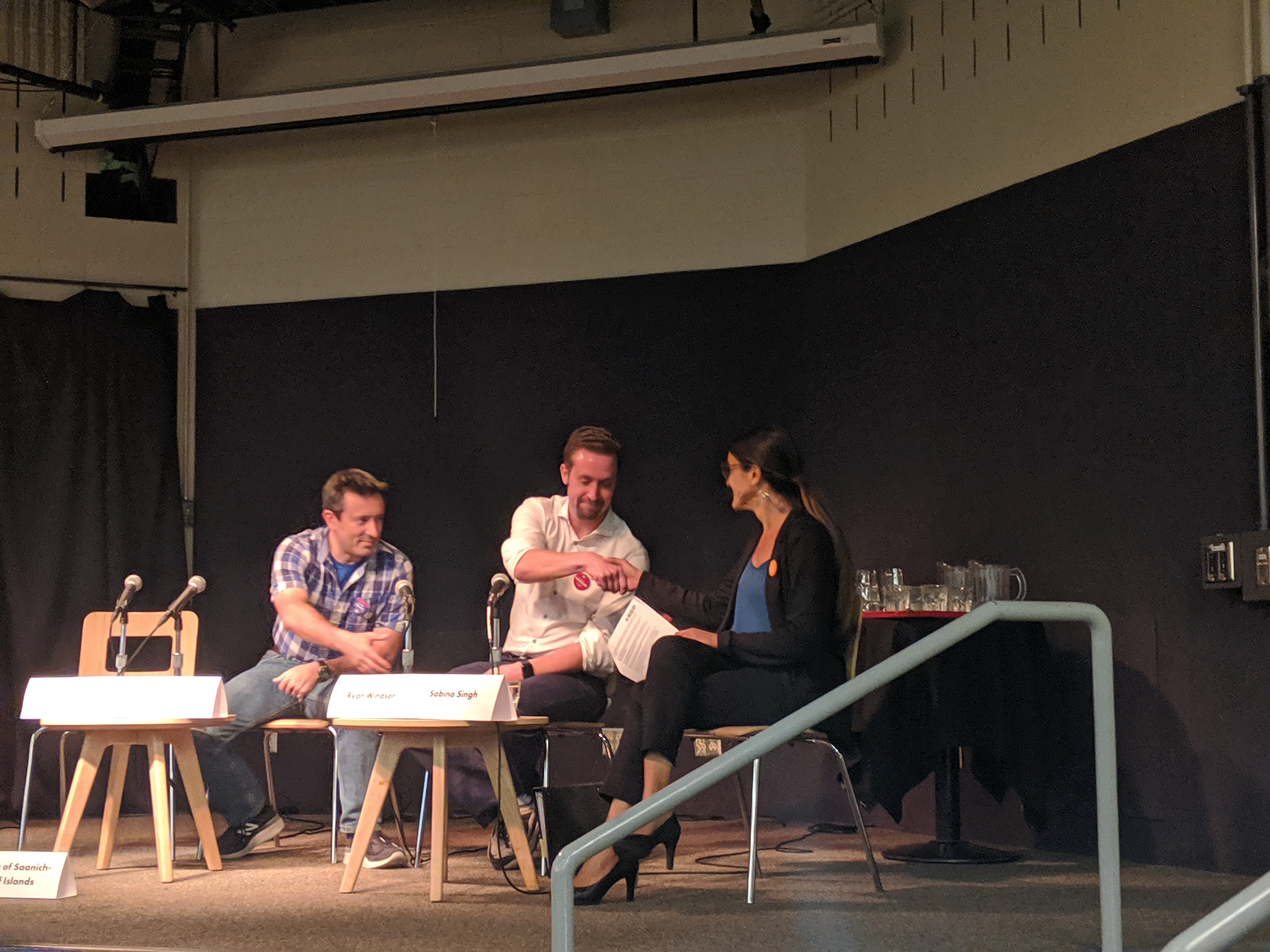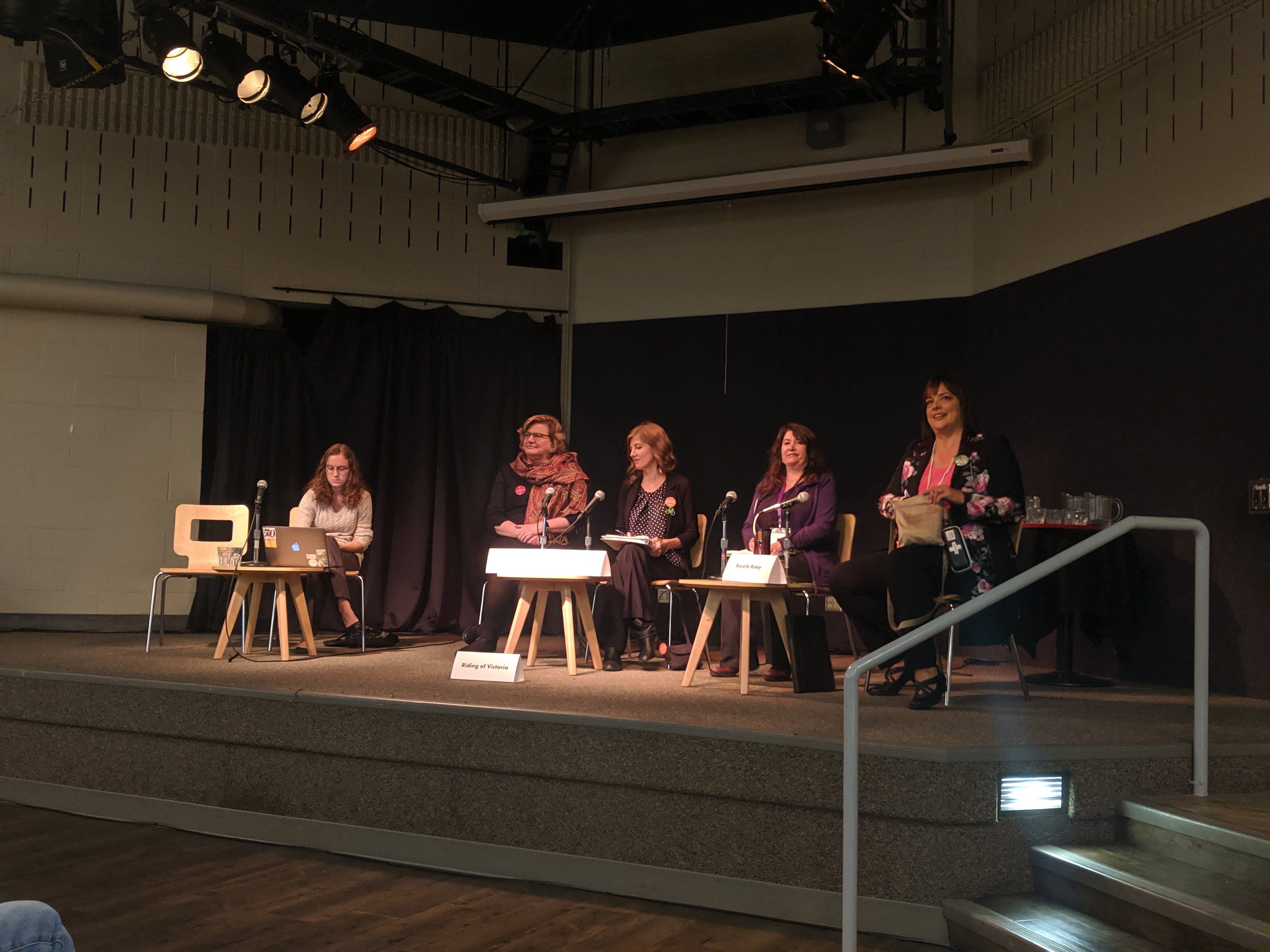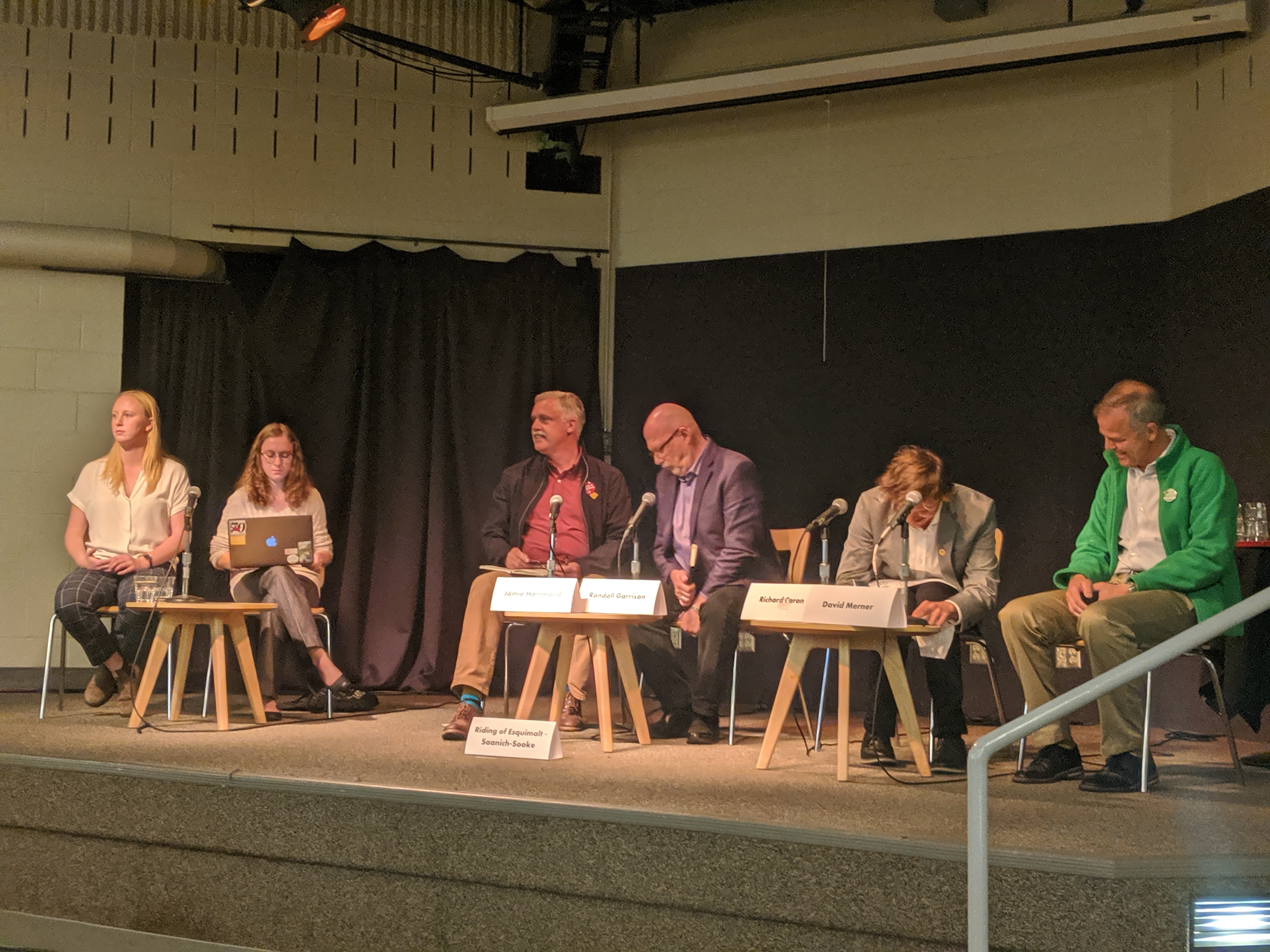With the federal election kicking into high gear, the UVSS, the Martlet, Elect Her, the Undergraduates of Political Science, and the Get Out The Vote campaign partnered to host an all-candidates forum and meet-and-greet on October 1 at the Vertigo Lounge in the Student Union Building.
The forum brought together many candidates from three ridings within Greater Victoria: Victoria, Saanich—Gulf Islands, and Esquimalt—Saanich—Sooke. Students, university staff, and community members not only had the opportunity to hear their candidates speak on important issues, but also to meet them afterwards. With a quarter of the 2019 electorate being made up by typical university-age voters (18–34), the debate also represented a critical medium through which candidates could try to connect with young voters, potentially gaining themselves an advantage come election day.
To start off the forum, each group of candidates were given several rapid-fire topics such as affordable housing or the opioid crisis, and were asked to show how much of a priority the topics would be for them if elected by putting up their fingers to represent on a one-to-five scale (with one being the least important and five being the most important). Next, each group of candidates were given one minute each to answer several questions written based on student-submitted queries.
The first panel of candidates was made up of those representing the riding of Saanich—Gulf Islands and included David Busch (Conservative Party), Ryan Windsor (Liberal Party), and Sabina Singh (New Democratic Party or NDP). This portion of the debate featured questions on affordable housing, Indigenous genocide, the opioid crisis, SNC-Lavalin, and healthcare. The area where candidates notably clashed were on the subjects of SNC-Lavalin and healthcare.
Windsor found himself defending his party with regards to SNC-Lavalin, citing jobs and pensions as justification for Liberal pressure on Jody Wilson-Raybould, while Busch used his background as a critical care nurse to critique and question the Liberals’ plan to combat the opioid crisis and shortage of family physicians in Canada.
One last point of contention was on economic diversification. While Windsor and Singh both talked about the need to get Canada off fossil fuels through clean-tech development and a just transition of workers, Busch cited economic studies that he said showed that “fossil fuel demand is going up worldwide by 10 per cent” and instead proposed that tech such as carbon capture can make fossil fuels cleaner and allows for cleaner energy development while there is still demand for oil and natural gas.
Next up were Laurel Collins (NDP), Nikki Macdonald (Liberal), Rachelle Kooy (Green), and Alyson Culbert (Peoples’ Party of Canada or PPC) of the Victoria riding. Candidates were asked about how they would represent their constituents and combat the climate crisis if elected. Macdonald used her platform to discuss the underrepresentation of Victoria in Ottawa and its tendency to “vote itself into a third party place,” and her ability to represent Victoria as a member “in the governing caucus” if elected. Collins talked about her ability to provide “bold action” on housing and climate change if elected, while both Culbert and Kooy talked about the lack of party whips within their parties which would better allow them to represent their constituents.
In regards to climate, Kooy highlighted the aggressiveness of the Green platform which includes a “just transition” for those working in the “sunset industries” of oil and gas. Culbert discussed the need for a “pragmatic” approach through investment of oil money in new technology which will “provide the solutions,” while Collins discussed the investments that the NDP would make in green energy and infrastructure. Lastly, Macdonald highlighted the $1.5 billion investment the Liberals had made in ocean management as an example of climate leadership. This was disputed by Collins, who stated that “buying a pipeline is not climate leadership.”
Esquimalt—Saanich—Sooke went last and consisted of incumbent Randall Garrison (NDP), Jamie Hammond (Liberal), David Merner (Green), and Tyson Strandlund (Communist Party). This portion of the debate proved to be more lively and although it posed questions surrounding racism and the safe third party agreement (allowing for the refusal of refugee applications if the applicant has already applied in another country), it quickly devolved into an attack by Strandlund on Garrison and Hammond for their support of “apartheid in Israel,” “French imperialism in Mali,” and the selling of weapons to Saudi Arabia. Hammond was also forced to defend current Prime Minister Justin Trudeau’s credibility following his “blackface scandal” and the safe third party agreement. He did this by citing Trudeau’s record on refugees and multiculturalism, as well as arguing that the safe-third party agreement provides needed efficiency to the application process.
Attending students afterward made clear that for many the debate proved a good opportunity to hear their candidates speak and for first-time voters to become more familiar with their options.
“It has in a sense, given me a better idea…and (has) allowed me to sort through the weeds a bit,” responded third year student Bailey Christiansen-Burrows when asked whether the debate had helped him make a decision on who to vote for.
For those eligible to vote, the election will take place on Oct. 21. Voters can check their registration status and other voting information on the Elections Canada website.









